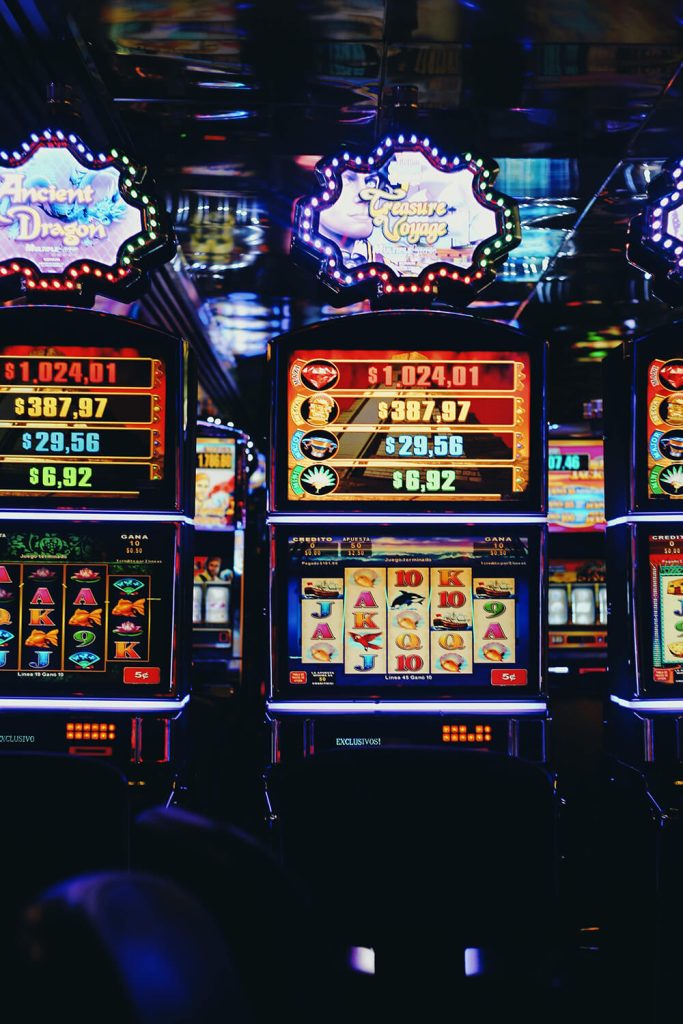What Is The Best Volatility For Slots?

When it comes to playing slots, understanding the volatility of the game is crucial to making informed decisions and maximizing your chances of winning. Volatility refers to the level of risk associated with a particular slot game, and it is reflected in how often and how much a slot machine pays out.Low volatility slots tend to offer smaller payouts, but more frequently, making them a safer bet for players who prefer a more consistent gaming experience. These games are ideal for players with a smaller bankroll, as they offer a lower risk of losing money quickly. However, the downside is that low volatility slots rarely offer large wins, which can be disappointing for players looking to hit a big payout.
On the other hand, high volatility slots offer the potential for larger payouts, but they pay out less frequently. These games are designed for players who enjoy taking risks and chasing big wins. High volatility slots often feature bonus games and multipliers, which can significantly boost the payout. However, the downside is that players may experience longer dry spells without any wins, which can be frustrating for some players.
Medium volatility slots offer a balance between low and high volatility, providing a mix of regular, modest wins and the chance for bigger payouts. These games cater to a broad range of players and are often among the most popular in online casinos.
When choosing the right volatility level for your gaming preferences, it’s essential to assess your goals, analyze your bankroll, and consider your personal gaming style. For example, if you’re a high-risk player chasing a massive jackpot, a high-volatility game might be right up your alley. On the other hand, if you’re more conservative and prefer a steady stream of smaller wins, a low-volatility version would be a better fit.
Slot providers also consider the presence of bonus features in a game when determining its volatility. Games with bonus rounds or special symbols that trigger additional features tend to have higher volatility, as these features can impact the frequency and size of payouts. The intensity and frequency of bonus rounds can significantly affect the overall volatility of a slot game. Overall, slot providers use a combination of factors such as symbol combinations, RTP percentage, and bonus features to calculate the volatility of a game. This information helps players understand the risk associated with playing a particular slot machine and allows them to make informed decisions based on their gaming preferences, risk appetite, and bankroll size.
Effective bankroll management is also crucial when playing high volatility slots, as they require a more substantial bankroll to withstand potential dry spells. It’s essential to set a budget and stick to it, avoiding the temptation to chase losses and potentially incurring more significant financial risks.
In conclusion, understanding the volatility of a slot game is crucial to making informed decisions and maximizing your chances of winning. By assessing your goals, analyzing your bankroll, and considering your personal gaming style, you can choose the right volatility level that aligns with your preferences and risk appetite. Happy spinning!

How does slot volatility affect the player’s experience?
Slot volatility is a crucial factor that affects the player’s experience in various ways. Volatility refers to the level of risk involved in a particular slot game, and it is reflected in how often and how much a slot machine pays out. Low volatility slots tend to offer smaller payouts but more frequently, making them a safer bet for players who prefer a more consistent gaming experience. On the other hand, high volatility slots offer the potential for larger payouts but pay out less frequently, making them ideal for players who enjoy taking risks and chasing big wins. According to a study conducted by Playtech, players react differently to volatility information labels for online slots. The study found that while volatility was chosen due to its significant influence on slots player experience in typical, shorter sessions, a wider range of game features also impacted the player’s experience. The study also found that players with access to volatility labels were similar to the control group in terms of the proportion of very low volatility games but were more likely to play high volatility games. The player experience is a mixture of both the volatility of the game and the volatility of their betting patterns. Players have a direct impact on the risk they are taking in the game and the nature of their gaming experience. For instance, a normally less volatile game can see its volatility increase dramatically if it is linked to an extremely high jackpot. Similarly, on an individual game basis, a player can change a slot’s volatility simply by betting more or less lines on the game, impacting the size and chance of a payout. To determine game volatility, understanding the player experience for individual players is critical. Careful consideration must be paid to the pay table as player choice can dramatically impact volatility. For example, in a classic game like Double Diamond with no progressive payout, the amount of the payout is correlated with the amount gambled, and the prize for a two-coin bet is double the prize for a one-coin bet. But in Wheel of Fortune and similar games, the size of the payout can be vastly different for a maximum three-coin bet vs a one-coin bet as it takes a maximum bet to trigger the top payout. Effective bankroll management is also crucial when playing high volatility slots, as they require a more substantial bankroll to withstand potential dry spells. Players must set a budget and stick to it, avoiding the temptation to chase losses and potentially incurring more significant financial risks.
-
1. Why is understanding poker terms important?
- Understanding poker terms can help players make better decisions at the table and improve their overall gameplay. By paying attention to their opponents’ reads, recognizing runner-runner situations, and identifying rainbow boards, players can increase their chances of winning and become more successful poker players.
-
2. How can you reduce the impact of luck in poker tournaments?
-
Playing with deep stacks and reasonable blind level lengths, tending to have a chip leader stack, and avoiding getting unlucky are some ways to reduce the impact of luck in poker tournaments. However, it is important to note that luck will always play a role in poker, and players must be prepared to adapt to changing circumstances and make the best decisions possible given the information available.ShareRewrite
-
-
3. What is bluffing in poker?
- Bluffing is a strategy used in poker where a player bets or raises with a weaker hand to give the impression of having a stronger hand. The goal is to convince other players to fold, allowing the bluffing player to win the pot without showing their hand. Bluffing is a key element of poker and can be used to win hands even when a player does not have the best hand.
